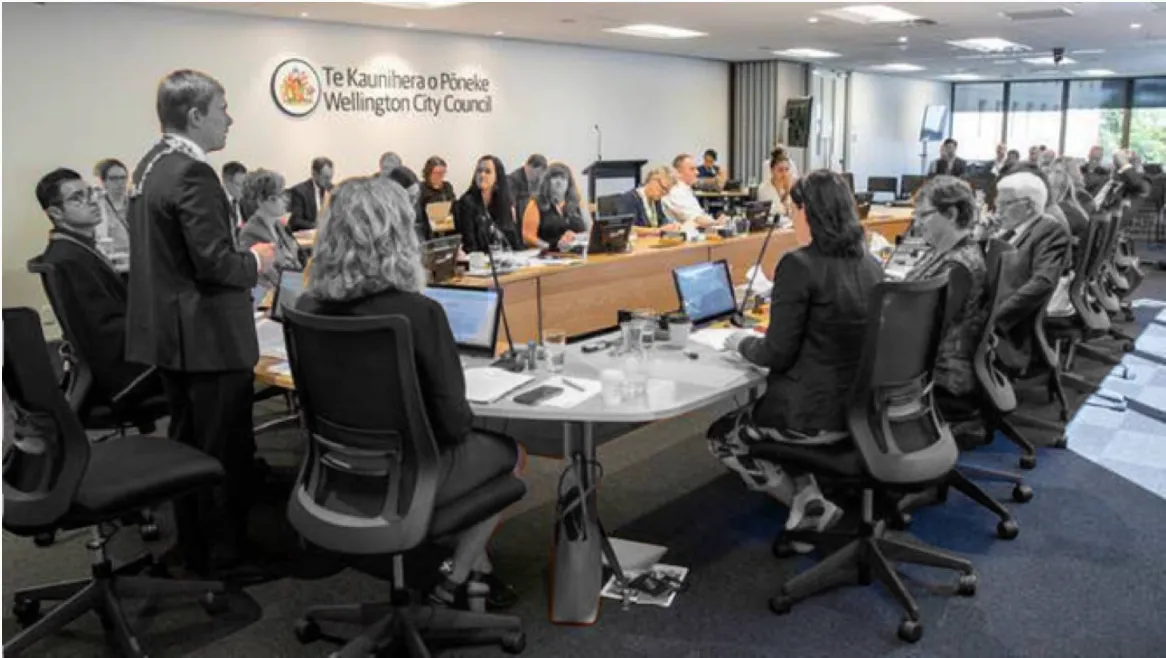Table of Contents
In the week I am writing this, Wellington City Council has announced it is facing a whopping 23% rates rise, and Tauranga Mayor Tenby Powell has resigned amidst calls to replace elected councillors with a government commissioner.
There is something seriously wrong with our council system.
In order to have any chance of fixing the problems, we need to be clear and honest about what the root causes are. To do that, we need to understand the structure of councils and how they operate.
The Local Government Act 2002 (LGA) effectively creates two separate organisations. We elect councillors. We do not elect the council.
Councillors have very limited power and are supposed to keep out of operational matters. The councillors employ one person – the chief executive. All council staff are employed by the chief executive. This is the root cause of the lack of accountability. Staff do not answer to the councillors, who are our elected representatives. Therefore staff do not answer to citizens or ratepayers.
We are led to believe we can change council by voting out councillors once every three years. The reality is that our elected representatives are the fall guys for poor performance by staff. We, the people, get angry and frustrated at waste and poor service, but we cannot change the council’s processes or staff agendas.
The chief executive may be an employee, but s/he is the real power. This is clearly demonstrated by the chief executive salary typically being more than twice the mayoral salary. In Hamilton, the mayor receives $180,000 per annum, while the chief executive is paid $460,000.
The LGA sets a maximum term of appointment for the chief executive of five years, with a right to extend the term for up to two more years. After that, the council is only required to re-advertise the position. The council can then reappoint the chief executive.
The Act sets no minimum term. Yet most councils automatically offer the chief executive a full five-year contract at the get go. This is madness. It is also fundamentally undemocratic. Councillors nearing the end of a three-year term can make the single-most important decision that is binding on the entire duration of the next council term.
It strikes me as reasonable to appoint a chief executive for a one-year term. If performance is good, then a one-year extension can be made. This gives more job security than you or I have. Following that, the position can be advertised, and any good chief executive can have confidence that s/he will be reappointed rather than council taking a punt on someone new.
In this way, the chief executive is held answerable to our elected representatives, and will, in turn, hold staff accountable.
This is likely to address the sort of failings that Wellington City Council is facing, which result from decades of poor planning about infrastructure replacement.
Tauranga’s issues relate to the councillors themselves. Elections have become popularity contests, with ex-sporting stars, failed MPs, and media personalities trading on their name recognition. Activists preaching diversity, union members (particularly teachers), and virtue-signalling social workers make up the balance.
There is no understanding amongst the electorate of the need for a balanced team with a range of critical skills to oversee the council’s core services. Effective councils need legal, accounting, engineering, and business skills. While I am sure they are lovely people, I am not convinced that Tauranga’s collection of a yoga instructor, wedding celebrant, pastor, real estate agent, and kindergarten owner have what it takes to provide the management guidance that New Zealand’s fifth-largest city needs.
If we want councils to function properly, we, the people, need to take local body politics seriously and make better-informed voting decisions.
Please share this article so that others can discover The BFD








